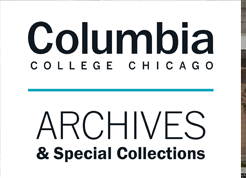Document Type
Article
Loading...
Publication Date
Fall 2009
Keywords
African National Congress, Steve Biko, Lisa Brock, Chicago Committee in Solidarity with Southern Africa, Prexy Nesbitt, Harold Rogers, Soweto Uprising, Truth and Reconciliation Commission (South Africa), Jeremiah A. Wright Jr., Disinvestment South Africa
Disciplines
African American Studies | African History | African Languages and Societies | American Politics | Civic and Community Engagement | Cultural History | History | Inequality and Stratification | International Relations | Other Political Science | Place and Environment | Political History | Political Science | Political Theory | Race and Ethnicity | Race, Ethnicity and Post-Colonial Studies | Work, Economy and Organizations
Abstract
Length: 92 minutes
Oral history interview of Funeka Sihlali by Renell Schubert
Ms. Sihlali begins by describing her childhood in King William’s Town when the Apartheid regime was instituted, living in government housing with her family in a single-room house with no bathroom, sharing a toilet with four other households. She explains having to learn the customs which were different from that in her home, for example, to look at African elders was a sign of disrespect, but outside of the home, she had to learn to make eye contact with white people to keep them from seeing her as "shiftless" and "mischievous." She details her involvement in the movement, both in South Africa and later in Chicago, helping her cousin, Owen Vana, a reporter for the Daily Dispatch, write letters that an Anglican Bishop would send out in Johannesburg to deliver information to those in communication. She mentions helping children who were having trouble going to school, assisting others who wanted to leave the country, and participating in public demonstrations. Sihlali describes her involvement in Chicago in CISSA through collecting donations and hosting rallies, identifying companies holding South African pension funds, as well as performing the role of an educator, offering on-the-ground insights as a South African.
Recommended Citation
Schubert, Renell. "Interview with Funeka Sihlali" (Fall 2009). Oral Histories, Chicago Anti-Apartheid Collection, College Archives & Special Collections, Columbia College Chicago. http://digitalcommons.colum.edu/cadc_caam_oralhistories/4
Creative Commons License

This work is licensed under a Creative Commons Attribution-NonCommercial-No Derivative Works 4.0 International License.
Included in
African American Studies Commons, African History Commons, African Languages and Societies Commons, American Politics Commons, Civic and Community Engagement Commons, Cultural History Commons, Inequality and Stratification Commons, International Relations Commons, Other Political Science Commons, Place and Environment Commons, Political History Commons, Political Theory Commons, Race and Ethnicity Commons, Work, Economy and Organizations Commons



Biography and Comments
Funeka Sihlali was born in 1948 in King William's Town [renamed Qonce in 2021], South Africa and lived in the same neighborhood as Steve Biko. Her father, who worked in Bantu Affairs as a civil servant, was born in Tarkasted, South Africa, and her mother, who worked as a schoolteacher and a healthcare worker, was born in Peddie, South Africa. After graduating from her boarding school and working for a few years, she earned her nursing degree. In the anti-Apartheid movement, she participated as a dispatcher and protestor and attended underground meetings. After coming to Chicago in 1976, she became deeply invested in different organizations, particularly CIDSA and CCISSA. Today, Sihlali lives in Chicago, Illinois.
The interviewer conducted this oral history as part of his/her coursework for the Fall 2009 class, Oral History: The Art of the Interview. This interview supports the scope and content of the Chicago Anti-Apartheid Movement Collection at the College Archives & Special Collections department of Columbia College Chicago. Contact archives@colum.edu for more information and to view the collection.